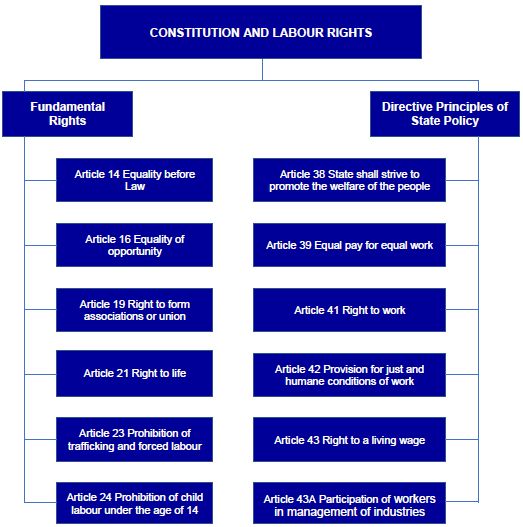- in European Union
- with readers working within the Aerospace & Defence industries
Alpha Partners releases its annual round-up document for updates in labour and employment laws for 2019. Please click here to access or download the document. The document analyses changes in the Labour law with the impending Labour codes, which one hopes will streamline and unify the disparate provisions of the Labour enactments in force at present. Various acts have been amended such as Payment of Wages Act 1936, the Employee State Insurance Act 1948, the Maternity Benefits Act 1961 etc. in order to ensure safe and better conditions of work.
* * *
LABOUR AND EMPLOYMENT LAWS IN INDIA
The legislation relating to labour and employment in India have significantly different features from other similar jurisdictions. The Government of Indian has been making efforts in the recent times to constantly evolve the laws, regulations, rules and policies relating to labour and employment in the country. In order to improve the ease of doing business and attract more investors in the country, the Government has brought about various amendments in the labour and employment laws owing to the rapid changes in the workplace due to advancement of technology, digitalization, etc. The applicability of these amendments inter alia depends on the size of the establishment and/or salary thresholds of the employees.
Indian labour legislation regulates laws relation to employment of workers. There are over 40 (forty) central acts and various state acts relating to labour and employment in the country. These legislations have been derived from the Constitution of India and the resolutions taken in the ILO (International Labour Organisation) conventions from time to time. In India, there is no single code on the labour and employment laws covering all aspects of labour and employment related issues.
Introduction
The Constitution of our country provides for three lists in the 7th Schedule of the Constitution of India, 1950 namely, Union List, State List and Concurrent List. "Labour" is a subject in the Concurrent List wherein both the Central and State can make laws subject to certain matters being reserved for the Centre. The relevance and need for protecting and safeguarding the interest of working labour and the employment conditions has been enshrined in Chapter-III (Articles 16, 19, 23 & 24) and Chapter IV (Articles 39, 41, 42, 43, 43A & 54) of the Constitution of India keeping in line with Fundamental Rights and Directive Principles of State Policy.
Labour law is also known as employment law. It is, therefore, the body of laws which addresses the legal rights of, and restrictions on the working employees and their organizations. It defines the rights and obligations of employees and employers in the workplace. The labour movement has been instrumental in the enacting of laws protecting labour rights in the 19th and 20th centuries. Labour rights have been integral to the social and economic development since the industrial revolution.
The law relating to labour and employment in India is generally known as "Industrial Law". Industrial Law defines the complex relationship between the workers/employees, employers and the Government. The labour and employment law determines some aspects of the terms of employment and the working conditions of the employees, employment including but not limited to wages, number of working hours, social security and other facilities provided to the employees, in order to level the playing field between employers and employees.
We are now on the cusp of major change in the labour laws with the impending labour codes which promise to consolidate the various labour laws into four Labour Codes, which one hopes will streamline and unify the disparate provisions of the labour enactments in force at present.

Background
Labour legislation in our country has a history of over 125 years. The history of labour legislation in India is linked and can be traced back to the history of British colonialism. The primary intention of the British to enact labour legislation was to safeguard the interests of the British employers. The considerations of British political economy were dominant in shaping some of the legislations. In the 19th century, at least 80% of India's population was working class.
The earliest Indian statute to regulate the relationship between employer and workmen was the Trade Disputes Act, 1929 (Act 7 of 1929). This Act was made to restrain the rights of strike and lock out but no machinery was provided to take care of disputes. The original colonial legislation experienced substantial modifications in the post‐colonial era because independent India called for a clear partnership between labour and capital. The content of this partnership was unanimously approved in a tripartite conference in December 1947 where it was agreed that labour class would be given a fair wage and fair working conditions and in return capital would receive the fullest co‐operation of labour for uninterrupted production and higher productivity as part of the strategy for national economic development and that all concerned would observe a truce period of three years free from strikes and lockouts. Ultimately, the Industrial Disputes Act was brought into force on April 01, 1947 repealing the Trade Disputes Act, 1929 and has ever since remained on statute book.
Please click here to access or download the document.
The content of this article is intended to provide a general guide to the subject matter. Specialist advice should be sought about your specific circumstances.
[View Source]

